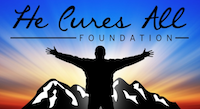
Click here to help toxic disease sufferers
How I Cured Morgellons
|
|
|
|
|
|
Linda 7/20/2020 8:53:43 AM MST |
Hi Peter and Karen. Thank you for this information. I cant tell you how many times over the years I have been gullible or naive enough to believe and spend money because I thought it would help I'm so grateful to have found Mel and logos. John B and Peter. I worked at public Health for a few years and the only gidelines they followed were CDC. I had no idea they were privately owned. Blessings Linda | ||||||
Karen 7/14/2020 8:06:05 AM MST |
Greetings to Peter and Everyone, In light of Peter's incredibly important post, I wanted to share some tips that librarians have developed in how to evaluate a website and the information it provides. One method for evaluation uses the acronym C.A.R.S Ask yourself the questions below as you look at a website. Use only the sites that best meet the criteria. C CREDIBILITY: AIM: To find "a source that is created by a person or organization who knows the subject and who care about its quality". Questions to ask: 1) "Is there a publishing or sponsoring organization: Is the organization an authority on the subject?" 2) "Is the author listed? Is the author an authority on the subject? How do you know?" 3) Are there spelling errors, grammar errors, dead links" etc. that "indicate a lack of quality control"? A ACCURACY: jAIM: To find "a source with information that is current, complete, and correct". Questions to ask: 1) "Does the information on the site agree with other sources?" 2) "Does the site contradict itself"? 3) Is the publication or copyright date recent? 4) How recently was the site updated? R REASONABLENESS AIM: To find "a source that is truthful and unbiased". Questions to ask: 1) Do you note a bias in the information? 2) "What is the motivation or purpose for creating the site"? ("To sell a product? To advance a viewpoint or belief"? "To educate"?) S: SUPPORT AIM: To find "a source with verifiable sources of information." Questions to Ask: 1) "Are the sources listed? Can they be verified? " 2) "Is there a way to contact the author or organization"? - - - - - - - To find the answers to some of these questions, try clicking on the link "About" or "Contact Us". The internet address (the URL) can give some hints as well. Websites with gov in the URL are generally from the government. But, as Peter wrote in the previous post, there can likely be additional information that is not at all obvious. Websites with .edu in the URL are published by universities or research institutes. .org URLS are from an organization or association. The often have a specific viewpoint, but if you are aware of that, it may not be a problem for your information seeking. .com URLS are sites published by a business. There are other types of website URLS, but here we have listed some of the more common ones. In this post we have not addressed social media forums such as Facebook, Instagram, or Twitter. The information on C.A.R.S. was quoted and adapted from "The C.A.R.S. Checklist for Evaluating Internet Sources". (a website) Research with Wisdom, Karen (the librarian) | ||||||
Peter 7/22/2020 6:05:38 AM MST |
Hello Folks According to a newly published Pew Research Center report, 55% of U. S. adults now get their news from social media “often” or “sometimes”. That same research also reports that 88% of Americans recognized that social media companies now have at least some control over the mix of the news that people see each day. Here is a perfect example. Did you know that the CDC is a privately owned Corporation? Yet they are setting protocols under the false notion that they’re gov’t owned. Does this make any sense to you? Just think . . . the public is looking at individuals who have a major presence on social media as being informed on a variety of issues. Their knowledge of most topics can be limited, at best – in many instances, non-existent. What scares me is that many of these same people are purposely predating on people suffering from mystery diseases by delivering misinformation to sell products. What I’m saying is that everything is a matter of perspective and it is up to you to get your information from a variety of differing sources in order to make informed decisions on the issues we are facing with toxic disease. Don’t let someone make up your mind for you. Please structure your efforts to become informed by investing your time going back on this forum. Then find people in your world whose experiences prove out what you have read. Godspeed, Peter | ||||||
2026 © All Rights Reserved.
